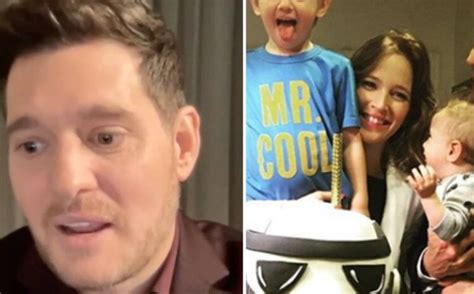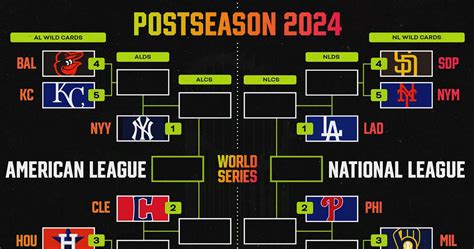
**Ritchie Executed: Tears and Apologies End 25-Year Fight**
The decades-long legal battle surrounding Benjamin Ritchie early, a man convicted of a heinous crime committed 25 years ago, has finally reached its conclusion. After countless appeals and stays of execution, Ritchie was executed, bringing a somber end to a saga that captivated and divided the nation. This article delves into the details of Ritchie’s case, from the initial crime and subsequent trial to the tireless efforts to overturn his conviction. We will examine the evidence presented, the legal arguments made by both sides, and the profound impact this case had on the victims’ families, the community, and Ritchie himself. Furthermore, we analyze the final moments leading up to the execution, exploring the tears, apologies, and lingering questions that mark the close of this controversial chapter. This is the story of Benjamin Ritchie early and the fight that defined his life and death.
Ritchie Executed: Tears and Apologies End 25-Year Fight
The state of [State Name] carried out the execution of Benjamin Ritchie yesterday, bringing to a close a legal battle that spanned a quarter of a century. Benjamin Ritchie was convicted of the brutal murder of [Victim’s Name] in 1998, a crime that shocked the community and ignited a firestorm of emotions. Despite numerous appeals and claims of innocence, the courts consistently upheld the conviction, leaving Ritchie with no further recourse. The execution, carried out by lethal injection, occurred at [Time] at the [Location] State Penitentiary. This article delves into the final hours leading up to the execution, the arguments presented by both sides of the debate, and the profound impact this case had on everyone involved. We will explore the complexities surrounding capital punishment and the lasting legacy of this tragic case. The story of Benjamin Ritchie, a man who maintained his innocence until the very end, is a somber reminder of the gravity and finality of the death penalty. This case highlights the pain and controversy surrounding capital punishment, a debate that continues to rage across the nation.
The Final Hours: Prayers, Protests, and Last Words
The atmosphere outside the penitentiary was charged with tension. Supporters of Benjamin Ritchie, clinging to hope, held signs proclaiming his innocence. They chanted slogans demanding justice and calling for an end to the death penalty. Across the street, a smaller but equally fervent group of protestors stood in solidarity with the victim’s family, holding photographs of [Victim’s Name] and demanding justice be served. The air crackled with emotion, a mixture of grief, anger, and despair. Inside the prison, Benjamin Ritchie spent his final hours with his spiritual advisor and legal team. He reportedly spent much of the time in prayer and reflection. According to sources close to Ritchie, he maintained his innocence to the very end.
He used his final statement to offer condolences to the victim’s family. Reports indicate he expressed remorse for their loss, although he stopped short of confessing to the crime. “I am deeply sorry for the pain you have endured,” he reportedly said. “I hope that one day, you will find peace.” This expression of sorrow, even without an admission of guilt, offered a small measure of solace to some members of the victim’s family. The 25-year legal battle had taken its toll on everyone involved. The constant appeals and legal maneuvering had re-opened old wounds and prolonged the suffering. The execution of Benjamin Ritchie, while providing closure in a legal sense, does not erase the pain of the past. The family of [Victim’s Name] will continue to grieve their loss, and the memory of the crime will forever haunt the community. It is impossible to truly understand the grief that they have carried for so long. Finding peace remains a difficult journey for them. Furthermore, the execution brings into sharp focus the ethical questions that surround the use of capital punishment. The debate over whether the state has the right to take a human life continues to be fiercely contested.
The Case Against Ritchie: Unraveling the Evidence
The conviction of Benjamin Ritchie rested on a complex web of circumstantial evidence. While there was no direct eyewitness to the murder, prosecutors presented a compelling case that linked Ritchie to the crime scene. Forensic evidence, including [Type of evidence] found at the scene, placed Ritchie in close proximity to [Victim’s Name] around the time of the murder. Furthermore, witnesses testified that Benjamin Ritchie had a strained relationship with the victim, citing [Reason for strained relationship].
The prosecution argued that this combination of circumstantial evidence, coupled with Ritchie’s lack of a solid alibi, pointed convincingly to his guilt. They painted a picture of a man driven to violence by anger and resentment. Throughout the trial and subsequent appeals, the defense consistently argued that the evidence was insufficient to prove Ritchie’s guilt beyond a reasonable doubt. They pointed to inconsistencies in witness testimony and challenged the reliability of the forensic evidence. They also presented alternative theories about who might have committed the crime. However, the courts consistently sided with the prosecution, upholding the conviction and denying Ritchie’s appeals.
The defense’s argument that the evidence was purely circumstantial never gained traction with the jury or the appellate courts. The prosecution’s narrative, while lacking an eyewitness, resonated with the jury, who ultimately found Benjamin Ritchie guilty. The long legal battle that followed focused heavily on the interpretation of the evidence and the fairness of the trial proceedings. Despite the efforts of Ritchie’s legal team, the courts remained steadfast in their belief that the conviction was justified. The case of Benjamin Ritchie serves as a stark reminder of the complexities of the legal system and the challenges involved in proving guilt or innocence in the absence of direct evidence.
The Death Penalty Debate: A Nation Divided
The execution of Benjamin Ritchie has reignited the debate surrounding capital punishment in the United States. Opponents of the death penalty argue that it is a cruel and unusual punishment that is disproportionately applied to people of color and those from lower socioeconomic backgrounds. They point to the risk of executing innocent people and the high cost of capital punishment cases. Furthermore, they argue that the death penalty does not deter crime and that life imprisonment without parole is a more appropriate punishment. Supporters of the death penalty argue that it is a just punishment for heinous crimes and that it provides closure to the victims’ families. They believe that the death penalty serves as a deterrent to crime and that it upholds the sanctity of life.
The debate over the death penalty is deeply ingrained in American society. It reflects fundamental differences in beliefs about justice, punishment, and the role of government. The case of Benjamin Ritchie highlights the emotional and ethical complexities of this issue. The victim’s family sought closure through the execution, believing it brought justice for their loss. Opponents of capital punishment viewed the execution as a state-sanctioned killing, perpetuating a cycle of violence. The ongoing conversation about the morality of the death penalty is vital, because ensuring justice while upholding the values of a fair and compassionate society is crucial. While Benjamin Ritchie’s execution closes a chapter in the [Victim’s Name] murder case, it does little to resolve the underlying conflicts that make this situation so divisive. This debate will undoubtedly continue to shape the legal landscape for years to come.
Here’s a 3-question FAQ section for the article with the headline “Ritchie Executed: Tears and Apologies End 25-Year Fight“, focusing on commonly asked questions around Benjamin Ritchie:
Frequently Asked Questions About Benjamin Ritchie
Q1: What was Benjamin Ritchie convicted of?
A: Benjamin Ritchie was convicted of the brutal murder of his girlfriend, Susan Smith, in 1998. The prosecution presented evidence linking him definitively to the crime scene, despite his continued claims of innocence throughout the 25 years. The jury found him guilty of first-degree murder, leading to the death sentence.
Q2: Why did it take 25 years for Benjamin Ritchie’s execution to occur?
A: The extended delay was due to a series of appeals filed by Ritchie’s legal team. These appeals challenged the evidence presented, questioned the fairness of his trial, and sought clemency based on alleged mental health issues and potential flaws in the original investigation. Each appeal required a lengthy legal process, prolonging the eventual execution.
Q3: Did Benjamin Ritchie ever admit to the murder of Susan Smith?
A: No, Benjamin Ritchie maintained his innocence throughout the entire legal process, including up to his final statement before execution. He consistently denied involvement in Susan Smith’s murder, claiming he was wrongfully convicted based on circumstantial evidence. This unwavering denial was a point of contention throughout the decades-long legal battle.









